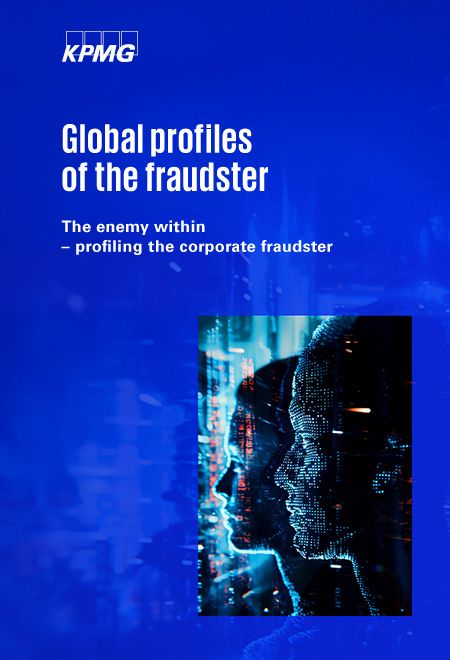White-collar crime is a persistent risk for companies worldwide. The new KPMG publication "Global Profiles of the Fraudster" shows: The perpetrators often operate from within the organisation - inconspicuous, longstanding employees, respected.
The study is based on the analysis of 669 perpetrators from 256 fraud cases worldwide - and provides an up-to-date profile of white-collar criminal behaviour:
- Over 80 percent of white-collar criminals are male.
- Most are between 36 and 55 years old.
- Two thirds had worked in the company for more than six years.
- 55 percent did not act alone, but as part of a team.
Alexander Geschonneck
Partner, Forensic, Global Head of Forensic
KPMG AG Wirtschaftsprüfungsgesellschaft
The most common type of fraud is the misappropriation of assets, for example through embezzlement or manipulated procurements. Central company departments such as finance, purchasing or the management office are particularly affected. The main cause? Weak internal control systems - a decisive factor in 76 per cent of cases.
Another key finding: in more than 45 per cent of cases, whistleblowers made the discovery - whether through whistleblower channels or informal tips. Early warning systems and an open corporate culture are therefore essential.
What companies should do now
- The publication highlights six concrete areas of action to better arm yourself against fraud: Establish strong internal controls - including clear responsibilities and regular audits.
- Promote ethics - through training and a "speak up" culture
- Enable early detection - for example through the use of data-based analysis tools
- Strengthen transparency - especially for sensitive roles or third-party contacts
- Comply with due diligence obligations towards third parties - through regular reviews.
- Anticipate technological developments - especially in the area of cyber risks.
A new perspective on the risk of fraud
It is particularly noteworthy that many perpetrators are not in personal distress - it is often about greed or opportunity. This makes it clear that trust alone is not enough. Companies must take structural precautions, regardless of the rank or reputation of their employees.
Read the full publication to find out how you can make your organisation more resilient to white-collar crime risks.




